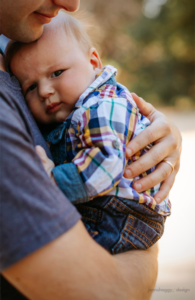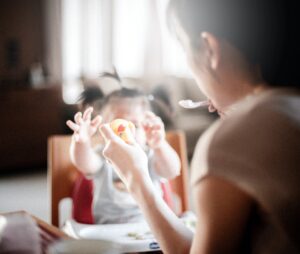By Iris Farrou
17 Oct, 2023
Childhood Health, Fatherhood, New Moms, Prevention, Procedures, Toddler Health, Your baby's health
allergic to, Allergy to medicine, antihistamines safe for babies, asthma, Baby Allergies, Blood test for babies, cats, dogs, dust, dust allergy, exzema, food sensitivity, How do I know if my baby has allergies, how to diagnose, Infant, is allergic, mold, Pediatric Allergist, Pediatrician, pets, toddlers, What age is safe for allergen exposure, what are the symptoms of anaphylactic shock
 We all know babies are fragile, and none other than parents of a newborn are more aware of this–and worried! Newborn babies can’t tell you what’s wrong with them, so the guessing game is nonstop, and the more you see your baby in distress, the more your worry skyrockets. Although parental anxiety may suspect the worst case scenario, sneezing and a runny nose, red eyes and itchiness could also just be signs of your baby experiencing allergies.
We all know babies are fragile, and none other than parents of a newborn are more aware of this–and worried! Newborn babies can’t tell you what’s wrong with them, so the guessing game is nonstop, and the more you see your baby in distress, the more your worry skyrockets. Although parental anxiety may suspect the worst case scenario, sneezing and a runny nose, red eyes and itchiness could also just be signs of your baby experiencing allergies.
Environmental and Seasonal Allergies
In fact, even very young kids can be allergic to pollen, dust, pet dander, and mold. Babies are more likely to experience allergies to foods and eczema–especially if you have a family history of those, as well as asthma. No region is safe from allergy triggers, but if you live in nature, are in close proximity to more allergens, have indoor pets, and generally enjoy the outdoors your baby may be exposed to more allergens. If they do have seasonal allergies, then the symptoms will begin.
- Itchiness and tendency to rub the eyes, ears and nose, as well as puffy or watery eyes
- Sneezing, wheezing, and frequent mouth breathing
- Dry cough with clear mucus, and possible shortness of breath
- Irritability or excessive fatigue
Food and Medicine Allergies
Food and medicine allergies have different symptoms, which are usually seen immediately after consumption of the offensive food or medication, within a few minutes or an hour or two later at most. If your baby is allergic to medication and their reaction is hives or a rash, that may take a few days to develop. However, immediate reactions may include hives, itching, shortness of breath, vomiting, nausea, or abdominal pain. Good news is that even if other symptoms are present, anaphylaxis is rare in babies.
Treating Allergies in Babies
Even though as adults we’d rush to take an antihistamine for our allergies, this is not recommended for babies under the age of 2. The safest treatment is to reduce your baby’s exposure to the allergen: if it’s pet dander you may want to limit the time spent with pets and close off certain areas in the house; for environmental allergies you may have to keep your windows closed and invest in an air purifier; food allergies will mean eliminating the foods with allergens and possibly consider w hether allergens may transfer to your baby through breastfeeding. You should consult with your pediatrician before administering any medication, even topical skin medications such as hydrocortisone cream.
Diagnosis
The good news is that even though your baby may not be able to articulate what’s going on, your pediatrician can perform a skin test to determine possible allergies– a test usually safe on anyone over 6 months of age. A blood test could also be done for younger babies, though it is not as sensitive as a skin test. Food allergens are usually determined by process of elimination, which can be a long process as you take out the allergens from your baby’s diet one by one every week. However, at the very least when you see a difference you will know what not to feed your baby!
More
By Iris Farrou
22 Aug, 2023
Childhood Health, Early Childhood Education, Fatherhood, Mental Health, New Moms, Parenting, Prevention, School, Toddler Health, Young adults & teens
abandonment, adjusting to change, Childhood Trauma, elementary school, faking sick, help my child adjust to school, high school, homesickness, how to help my child feel comfortable at school, issues, middle school, morning anxiety, morning routine, Preparing for school, preschool anxiety, school safety, separation anxiety, stomach aches before school, teachers

With Fall just around the corner, you know that back-to-school– or first-grade–season is upon us! Getting ready for the school year is always an adjustment for families, even more so if your first-born is about to join the first grade. There may be a lot of excitement, as well as nervousness, around the situation. How can you help your child, or children, and the whole family be better prepared for the school year?
Stress and Anxiety
It’s not unusual for first-graders to experience anxiety that takes the form of tummy aches or headaches, especially on Monday mornings or Sunday nights. Sometimes, you may even get a call from the school that your child is feeling unwell. These are not lies, nor are children faking discomfort in order to stay home. They are experiencing discomfort due to the anxiety of being away from home.
- Establish a morning routine that makes your family feel more connected; you can spend some extra snuggle time with your child, especially on Monday mornings, and allow enough time to have a good breakfast as a family.
- Especially in the first few weeks of school, you may want to get there early to cement the goodbye-routine: reassure your child that you are always available during the day if they need you, and remind them that they are safe. Remember that this can feel very daunting for a child, as they are spending a lot of time away from home–which they know as a safe place–and they are surrounded by new people in a new environment.
- Share your own stories from school, and bond over those memories with your child. It will make them feel much more comfortable to hear that their role model was also nervous going to school, or had the same issues as them. Sharing stories and experiences openly will not only enhance your child’s trust towards you, but it will reassure them that what they are feeling is normal.
- Be early for pickup time; your child’s separation anxiety is volatile until they fully adjust to school, and they are really looking forward to seeing you and feeling safe that they are going home. As the school day reaches its end, their expectation and nervousness heighterns: it is of immense importance that they see you waiting for them during pick up time, and are not left wondering or feeling abandoned.
Familiarity and Safe Spaces
Even if your child has attended pre-school, going to grade school is another can of worms… in addition, it is a new school and they don’t know what it looks like or what to expect. How can you help them feel secure about this change?
- Visit the school with them, walk through the campus and be present in this new space where they will be spending a lot of time without you. Trivial as it may sound, it will help your child tremendously to know what their future classroom will be like, where they will be sitting, where the restrooms are, the cafeteria, exit and pickup point, main office, etc.
- Meet the teachers if you can, as essentially they will be the “replacement” caretakers and safe people for your child while they are at school. If you can facilitate building trust and rapport with your child’s teachers before the school year begins, then your child will feel more comfortable in their expectations.
- Talk through the curriculum with your child, and explain what expectations come with grade school. It’s a new structure, so the more you can explain to them what their day will look like, what they will be doing at this new school, and what they will be doing at home as a learner, the better prepared they will be when they hear “homework” is expected to be completed.
As much as we would like to keep our children in a bubble, we all know that this is not possible. However, there is nothing more important than preparing for the school year as a family and validating your child’s anxiety–both before the school year starts and during the school year. Fingers crossed, this new school year will be filled with excitement and happiness! Remember that you and your child are a team in this, and you should always be able to reach out to the school for support if need be.
https://www.wikihow.com/Adjust-to-a-New-School
https://www.mayoclinichealthsystem.org/hometown-health/speaking-of-health/back-to-school-tips-to-help-students-adjust
https://www.ahaparenting.com/read/Help-kids-adjust-school
More
By Iris Farrou
18 Aug, 2023
Childhood Health, Early Childhood Education, Fatherhood, Lifestyle Tips, Mental Health, New Moms, Parenting, Toddler Health, Young adults & teens
Abuse, Accident, ACE, Childhood Illness, Childhood Trauma, Children, Community, Divorce, Family Dynamic, Financial Stress, Grieving, Kids, Mental Health, Neglect, Nightmares, Pediatric, Pediatric Mental Health Care, PTSD, Teenager, Toddler Trauma, Trauma, Traumatic Childhood Experiences, Violence, Witness, Witnessing

When we’re getting ready to start a new family, we may find ourselves reflecting on our own childhood experiences, and comparing with our partner how each person grew up– perhaps the goal of this introspection is to create a new family that is healthy, happy, and flourishes with good communication. If you are in the process of family planning, you may want to take into account ACEs: Adverse Childhood Experiences.
What are they?
Adverse Childhood Experiences are traumatic events children experience between the ages of 0-17. These have long lasting effects, may lead to chronic health conditions, and people address them well into adulthood. It is important to remember that ACEs affect a child’s brain, and how they experience the world.
ACEs are quite common, with 60-80% of US adults reporting they have had at least one adverse childhood experience up until age 17, and 1 in 6 US adults saying they’ve had four or more. The most potentially traumatic ACEs can include experiencing violence, abuse, or neglect in the home, neighborhood, or school, witnessing violence in the community or otherwise living in a dangerous environment (war zone, poverty stricken areas, etc.), going through a natural disaster, witnessing serious injuries or the death of another person, losing a loved one or experiencing parental loss due to separation. However, this is by no means an exhaustive list of possible ACEs: any event that may cause trauma and long-term stress can be classified as an adverse childhood experience that adversely affects a person as an adult.
How do I know if my child has had an ACE?
The effects of a traumatic or stressful event may not be immediately visible, or take place soon after the traumatic event has occurred. If your child confides something in you that would be traumatic, then that is a clear indication of an event that would warrant immediate support–with the assistance of a mental health professional who specializes in children or teenagers.
Additionally, if you are going through something as a family, such as a divorce, death, fatal accident or illness, natural disaster, poverty, community violence, unemployment, housing and/or financial insecurity, you may want to address those events as potentially traumatic for your child. We cannot always correct or control life’s adversities, but we can recognize them for what they are and present this as a starting point to healing. If you recognize, as a family, that an event has been traumatic then this shows to your child that it’s ok for things to not be “normal”–that it’s part of life, and that our reactions or daily life will change when something happens.
If there is an event or experience that you do not know about, once your child has had time to process the experience you may start noticing signs of trauma that could include, but are not limited to: difficulty sleeping or having nightmares, wetting the bed, changes to their mood, fear of other people, difficulties in school, avoiding situations, events, or people (these may be directly associated with the traumatic event), as well as difficulty showing affection towards family and friends–especially if this is a change from their usual behavior.
How can we avoid ACEs?
The unfortunate truth is that we cannot completely eliminate ACEs, as much as we may want to. What we can do, however, is raise awareness about them so that we can all start thinking differently about childhood trauma. Historically disadvantaged populations are more susceptible to trauma, but that does not mean that everyone else is excluded. The causes may be societal, historical, natural forces, or people, but each one of us can help lessen the blow of an ACE: whether you are a parent, friend, caregiver, teacher, or neighbor. Raising awareness of ACEs means switching the focus from individual responsibility to community solutions: we can all help prevent ACEs, and help children develop strong coping mechanisms. It is important to reduce the stigma associated with parents who struggle to provide a safe environment for their children, and seek community and/or government support to do so. It is also important to remember that any one of us can promote safe, stable, and nurturing environments where children are present.
https://www.cdc.gov/violenceprevention/aces/fastfact.html
https://my.clevelandclinic.org/health/symptoms/24875-adverse-childhood-experiences-ace
More
By Iris Farrou
27 Jul, 2023
Childhood Health, Fatherhood, Lifestyle Tips, New Moms, Parenting, Postpartum, Toddler Health, Your baby's health
are strollers too hot in the summer, Baby, Baby Safety in Summer, how do I keep my newborn safe in the sun, How to keep my baby from overheating, is central AC safe for my baby, keep my baby cool, keep my infant cool, new dads, new mom advice, new moms, newborn body temperature regulation, Toddler, toddler overheating, what clothing is best for baby in hot weather, what time of day is best to go outside during summer with newborn
 If you’re spending your first summer with your baby, there are a few things to keep in mind about newborn babies and the summer heat so everyone can remain safe and have an enjoyable summer. Depending on which part of the US you live in or are visiting this summer, keep in mind that the heat may continue into the fall months–or it may be humid heat rather than scorching sun. Either way, the key information to remember is that babies cannot regulate their own body temperatures– older children and adults are able to do so, but babies need extra assistance and protection.
If you’re spending your first summer with your baby, there are a few things to keep in mind about newborn babies and the summer heat so everyone can remain safe and have an enjoyable summer. Depending on which part of the US you live in or are visiting this summer, keep in mind that the heat may continue into the fall months–or it may be humid heat rather than scorching sun. Either way, the key information to remember is that babies cannot regulate their own body temperatures– older children and adults are able to do so, but babies need extra assistance and protection.
- Overheating is very risky for newborn babies: if you are hot, then your baby is definitely hot as well. It is not unusual or “wrong” to keep babies in either a light onesie or only a diaper.
- Keep the temperature cool: if you have a central AC or a window AC unit and can afford to keep it running to keep the temperature lower than 77F degrees, that is ideal for a baby. Utilizing box fans on your windows for air circulation, as well as ceiling fans, is another method to ensure your baby stays cool.
- Help them sleep comfortably: especially when sleeping, your baby can be only in a diaper or swaddled using very thin, lightweight and breathable material. If you are not using central AC, make sure there is a fan in the room where your baby is sleeping–preferably not pointed directly at them, though.
- Proper hydration: you know that’s true for people of all ages, and the same goes for babies. If you notice infrequent urination or crying without tears, these are signs that dehydration has already occurred. Your instinct may be to give your newborn baby water, but that is a big NO in this case; their bodies cannot process water. Breastfeeding or milk formula in smaller and more frequent doses are a better solution. If your baby is already eating other foods, try to use more hydrating foods in their diet and provide more frequent–but still smaller–meals.
If the outside temperature is above 90 degrees, or 84ish with humidity, this is when your newborn, toddlers, or young children should NOT be outside, especially no more than 15 minutes if you absolutely have to be out. Try to not stay in the heat for too long, and seek shelter in air-conditioned spaces.
If you are using a stroller, keep in mind that it may not be the best idea to go for a walk in the heat—however, you should choose a stroller with a large canopy for extra protection for the warmer months. Avoid going outside in peak heat times of 10am-2pm, and dress your baby in breathable cotton clothing, preferably loose, that covers their skin as much as possible. Wide hats and sunglasses do look adorable on babies, and are also very much necessary.
https://www.michiganmedicine.org/health-lab/how-protect-your-baby-dangers-hot-weather
https://www.whattoexpect.com/first-year/health-and-safety/how-to-protect-children-from-extreme-heat/
More
By Iris Farrou
22 Jun, 2023
Childhood Health, Diet & Exercise, Fatherhood, New Moms, Parenting, Prevention, Toddler Health, Women's Health, Young adults & teens, Your baby's health
Anxiety, Baby, Boost Immunity, Child, food, Good Health, Immune System, Immunizations, Importance of, Pre-Teen, Probiotics, Sleep, Strengthen, Stress, Toddler, Vaccine, Vaccines, Vitamins, Wellbeing

The first concern every parent has when it comes to their child’s health is to keep them safe as much as possible. With extracurricular activities, summer camps, and attending school being a normal part of any child’s life, and going hand in hand with exposure to germs, it is often a challenge to help your children’s immune system stay strong. There are two routes that can assist you in this struggle: diet and lifestyle.
Before we talk about details on either path, there is one undeniable basis: make sure your children are up to date on important vaccines. For all people 6 months and older, the flu shot is recommended. COVID vaccines are now safe for younger ages as well–make sure all eligible family members are immunized, and keep checking with your pediatrician about being up to date on other necessary immunizations.
Diet and Supplements
In an ideal world, you have the time to prepare the best and healthiest meals for your family, and your children are never picky eaters. That would be a wonderful movie, but it is not the truth. Though pediatricians advise against using supplements and multivitamins to enrich your child’s diet–particularly because those are not well regulated in the US and their ingredients are not guaranteed–there are certain cases when supplements are needed.
Vitamin D is the first vitamin that helps children build a strong immune system; they usually would absorb it from the sun. However, if you do not live in a sunny area, there are certain kid-friendly foods that can help with that: fortified Vitamin D milk and yogurt, and orange juice. If you are lucky enough to be able to serve your child salmon, trout, tuna, and sardines then you are raising their chances of absorbing the necessary amount of Vitamin D. To use supplements, it is suggested that you first consult with your doctor and do a blood panel to see where your child’s Vitamin D levels are at, and what supplement is most appropriate for them.
Zinc is an important mineral that assists kids’ immune system. Oysters, red meat, and poultry are the best sources of zinc, followed by beans and nuts. If your child does not accept any of these foods, consult your pediatrician on how to proceed with a zinc supplement.
Probiotics and prebiotics play an important role in our immune system, specifically because they ensure good gut health. Probiotics ensure a good balance of helpful bacteria in our bodies, and in addition to yogurts you can try giving your child fermented foods–like pickles or miso–to help with that. Prebiotics also stimulate the growth of good bacteria, and they are mostly plant fibers: green bananas or plantains, yams, asparagus.
Lifestyle
Keep in mind that a healthy lifestyle is additional to a balanced diet when it comes to fortifying your child’s immune system. If you don’t have fruits and vegetables, as well as nuts and seeds in their diet, lifestyle changes can only do so much.
However, keep in mind that children need lots of sleep for their system to function properly and recharge. 12-16 hours for infants and around 10 hours for kids is what’s necessary to assist your kids in being healthy and help keep them on a regular schedule. Additionally, exercise and keeping active can do wonders for our immune system: encourage your child to be physically active at least one hour a day in some form of activity that they like; if they appreciate sports, so much the better! Physical activity doesn’t only contribute to overall good health, but it also helps manage stress. When we are stressed, especially in cases of heightened or chronic stress, our immune system is volatile and makes us more prone to infections. Be mindful of the stress levels your child may be facing, and encourage activities that make them happy and fulfilled.
https://www.health.harvard.edu/blog/boosting-your-childs-immune-system-202110122614
https://health.clevelandclinic.org/how-to-boost-your-kids-immunity/
More
 We all know babies are fragile, and none other than parents of a newborn are more aware of this–and worried! Newborn babies can’t tell you what’s wrong with them, so the guessing game is nonstop, and the more you see your baby in distress, the more your worry skyrockets. Although parental anxiety may suspect the worst case scenario, sneezing and a runny nose, red eyes and itchiness could also just be signs of your baby experiencing allergies.
We all know babies are fragile, and none other than parents of a newborn are more aware of this–and worried! Newborn babies can’t tell you what’s wrong with them, so the guessing game is nonstop, and the more you see your baby in distress, the more your worry skyrockets. Although parental anxiety may suspect the worst case scenario, sneezing and a runny nose, red eyes and itchiness could also just be signs of your baby experiencing allergies. 



